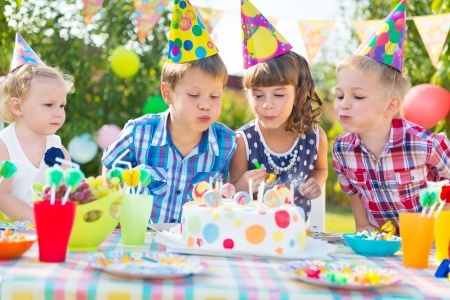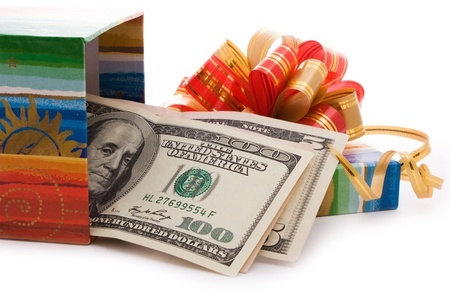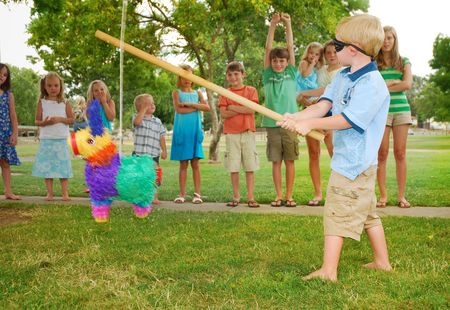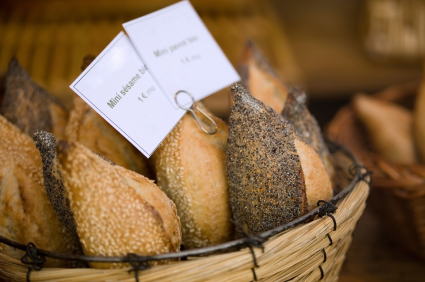
In my quest to teach my children the art of eating well, I’ve decided to do less of sugar and more of wholesome foods. My two kids’ birthdays fall in the same month. As a total wellness doc and mom I’m always looking for alternatives to celebrate.
Birthday celebrations are synonymous to sweet treats, sugar laden birthday cupcakes, cakes and more sugary treats. What do you do if you are looking for ways to celebrate the special occasion of each child without indulging in sugar or baked goods? What if your children are gluten intolerant and suffer from sugar hangovers?
I asked these questions too. So I’m on a quest to seek out “gluten-free” kids’ birthday celebrations around the world.
Germany
In the Middle Ages the Germans came up with Geburtstagorten, the first birthday cake layered with sugar to celebrate Kinderfest – young children’s birthdays. In the 17th century birthday cakes became more elaborate with the introduction of icing and decorations. It was catered for the wealthy.
By the 18th century with the creation of modern cookware, birthday cakes became more affordable and were accessible to all consumers. (Source: Proflowers)
That was the origin of birthday cakes.
China
In the Chinese culture the actual birthday of a child is usually not celebrated in grand scale unless it is the child’s one month and one year birthday. These two days are celebrated with dyed red eggs. It is definitely a sugar-free occasion.
The Chinese believe that everyone turns a year older on Chinese New Year Day. “Birthdays” are celebrated on that day with new clothes, new shoes, new haircuts and children receive money in red packets.
On a child’s birthday, simple bowls of noodles are served during lunchtime because it symbolizes long life. The child in turn has to give respect to his or her parents and the elderly before given gifts of money.
Such tradition has been passed down for generations and the Chinese immigrants in parts of Asia like Malaysia and Singapore are still following the same traditions.

The Netherlands
According to BirthdayCelebrations.net, in Holland a child’s 5,10, 15, 20 and 21 birthdays are also known as crown years. They are the most important birthday celebrations. The birthday child receives gifts and family members decorate a birthday child’s chair at the dining room with seasonal flowers or paper streamers and balloons.
Have your heard of the term “go Dutch”? “Going Dutch” means you pay for yourself. A child will bring birthday treats to school to share with classmates and teachers. An adult celebrating his or her birthday is expected to bring and share a birthday cake, the slagroomtaart with the co-workers.
Slagroomtaart is a layered sponge cake with fresh fruit and whipped cream. It is not gluten-free.
The Maasai of Kenya and Tanzania
Africa is diverse in cultures and traditions. The Maasai tribe of Kenya and Tanzania celebrate their children through several rites of passage. They include birth, puberty, “warriorhood” for males and marriage for females.
Early in the morning on the child’s first birthday, the mother chooses a sheep or a cow and the men of the family slaughter the animal.
Then children and women wash themselves and put on the best beadwork outfits. Mother and birthday child will shave their heads. The elderly of the family is responsible in naming the child.
Next important celebration is puberty where circumcision is done. Boys celebrate this rite of passage between the age of 11 to 14 and the girls when they get their first period. You can read more about this from the Southern Nazarene University’s website.
Birthday for the Maasai tribe is more of celebrating the transition or different stages of a child’s life. It defines the moment of manhood, womanhood and responsibility.
Mexico
In Mexico, birthday celebrations include rice and beans for family and friends and a piñata hanging from a tree with treats for the children. No birthday parties are complete without the piñata.

The birthday child is blindfolded and given the honor to hit the piñata until it breaks and have all the goodies flow out. Children attending the birthday celebration will rush to pick up as much goodies as they can.
A children’s book about Rosa Maria, a grandma preparing a birthday party for her youngest grandchild called Arroz con frijoles y unos amables ratones (Rice and Beans and Some Friendly Mice by Pam Munoz Ryan) shows readers the art of slow cooking of rice and beans and an occasion that involves the whole family to celebrate an important day for a child.
Israel
Besides the importance of the 13th birthday, the second or third birthday of a child is important to the Jewish culture. It is celebrated because the child was weaned and the uncertain stage of infancy is over. According to Jewish Encyclopedia, Abraham made a great feast on the day Isaac was weaned.
The Chabad organization suggests the birthday child find a quiet place to think about the past year – what went right and what should be fixed and spend time praying. They are to read the Psalms (Psalms according to their age, age 10=Psalms 10), study the Torah and share with friends what they learned.
The birthday celebration includes giving extra to charity, eating a new seasonal fruit, showing gratitude to God and getting the aliyah (blessings).
These days in cities and richer neighborhoods throughout the world, birthday cakes and candles are a norm for birthday celebrations. You can find them in China, Israel, Mexico and a handful of the Masaai tribe.
From this research I’ve learned two lessons that could be implemented at any home celebrating kids’ birthdays.
1. There is no right or wrong way of celebrating kids’ birthdays. We can adjust and make whatever suits our family’s needs. For families who choose to have gluten-free or sugar-free celebrations, there are now options to get gluten free cakes or sugar-free birthday cakes. Here is a sugar-free birthday cake recipe from Dr. Greene.
2. Birthdays are about creating family traditions and celebrating the rites of passage- a time to add affirmation and encouragement. It is also a time to celebrate the child and let him or her know how much you appreciate them and their growth. It is a perfect moment to speak words of life for the next year. Read more about rites of passage from Focus on the Family.
A friend shared about how she celebrated her children’s birthday. Other than the usual gifts and goodies, each member of the family will speak words of encouragement, even to a child who is three. Words like “John, I like how you have learned to share your toys with your brother, how you have learned to keep your toys away when asked and I also appreciate how you encourage me with kind words whenever I lose in our Uno games.”
Another friend has pictures of the birthday child throughout their life up all around and then Bible Scriptures that encourage the child. After the opening of gifts the adults and or kids will say a blessing over the birthday child.
How do you celebrate your kids’ birthdays? Please share. If you would like to know why we are so “hooked” on sugary treats, read more “10 Hidden Secrets Why You Can’t Get Your Hand Out of the Cookie Jar!”
Disclaimer: This information is not meant to diagnose, prescribe, treat or cure any illness or disease. It’s strictly for informational, educational, or entertainment purposes ONLY. The products I talk about are not meant to diagnose, prescribe, treat or cure any illness or disease. Any information I give you about them is for informational or entertainment purposes only. They have not been evaluated or approved by the FDA. Please seek the qualified health professional of your choice when making health decisions for yourself, your family and your pets.

